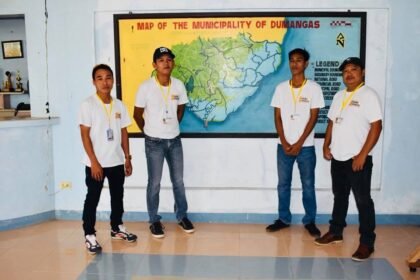Market research is the cornerstone of informed decision-making for businesses, guiding strategies, product development, and customer engagement. Within this vast realm, field market research stands out as a dynamic and multifaceted approach that goes beyond surveys and data analysis. It involves real-world interactions, on-the-ground observations, and in-depth qualitative analysis to uncover nuanced insights. In this article, we delve into the intricacies of field market research, exploring its methodologies, benefits, challenges, and the evolving landscape in today’s digital age.
Understanding Field Market Research
Field market research is a systematic process of collecting, analyzing, and interpreting data directly from the field or real-world environments where target audiences operate. Unlike traditional methods that rely heavily on surveys and secondary data, field research immerses researchers into the natural settings of their subjects, offering a firsthand perspective and rich contextual understanding. This approach encompasses various methodologies such as ethnography, observational studies, in-person interviews, focus groups, and mystery shopping, among others.
Methodologies in Field Market Research
1. Ethnography:
Ethnographic research involves observing and interacting with individuals or communities within their natural environments. Researchers immerse themselves in the daily lives of participants, gaining insights into behaviors, preferences, and cultural influences that shape decision-making processes. This methodology is particularly effective in understanding consumer lifestyles, product usage patterns, and social dynamics.
2. In-Person Interviews:
Conducting face-to-face interviews allows researchers to delve deeper into respondents’ perspectives, emotions, and motivations. These interviews can be structured, semi-structured, or unstructured, depending on the research objectives. Building rapport and trust with participants is crucial in eliciting honest and valuable insights.
3. Observational Studies:
Observational research involves systematically watching and recording behaviors, interactions, and environmental cues without direct interaction with participants. This method is valuable for studying consumer behavior in retail settings, assessing product placement effectiveness, and understanding decision-making processes in real time.
4. Focus Groups: Focus groups bring together a small, diverse group of participants to discuss specific topics or products under the guidance of a moderator. This interactive setting encourages open dialogue, idea generation, and consensus building, offering qualitative insights into consumer perceptions, preferences, and attitudes.
5. Mystery Shopping: Mystery shopping involves sending trained evaluators or “shoppers” to assess the quality of services, customer experiences, and adherence to brand standards at retail locations. This method provides valuable feedback on aspects such as staff professionalism, store ambiance, and overall customer satisfaction.
Benefits of Field Market Research
1. Rich Contextual Insights: Field research enables researchers to understand the “why” behind consumer behaviors by immersing themselves in real-world contexts. This depth of understanding goes beyond numerical data, uncovering underlying motivations, cultural influences, and environmental factors that shape decision-making.
2. Real-Time Feedback: By engaging with participants in their natural environments, field research captures real-time feedback and observations. This immediacy allows businesses to identify emerging trends, market gaps, and consumer sentiments promptly, enabling agile decision-making and adaptive strategies.
3. Enhanced Validity: The authenticity of data collected through field research is often higher compared to surveys or secondary sources. Direct interactions with participants reduce response biases and provide genuine insights that reflect real-world complexities and nuances.
4. Holistic Perspective: Field research encourages a holistic perspective by considering the interconnectedness of various factors such as cultural norms, social dynamics, economic conditions, and individual preferences. This comprehensive view enhances strategic planning and targeted marketing efforts.
Challenges in Field Market Research
1. Resource Intensive: Conducting field research requires significant resources in terms of time, budget, and manpower. Fieldwork logistics, participant recruitment, travel expenses, and data collection tools contribute to the overall cost, making it challenging for smaller businesses or startups with limited resources.
2. Complexity of Data Analysis: The qualitative nature of field research data often requires sophisticated analysis techniques such as thematic coding, content analysis, and pattern recognition. Interpreting nuanced insights from diverse sources demands expertise in qualitative research methodologies and analytical frameworks.
3. Ethical Considerations: Ethical considerations in field research include obtaining informed consent from participants, ensuring confidentiality and anonymity, and maintaining integrity in data collection and reporting. Balancing the need for valuable insights with ethical guidelines is essential to uphold research integrity.
4. External Influences: Field research is susceptible to external influences such as environmental changes, participant biases, and unforeseen events that can impact data quality and research outcomes. Researchers must navigate these challenges proactively to minimize distortions and ensure research reliability.
Evolving Landscape: Digital Technologies and Field Research
The advent of digital technologies has revolutionized field market research, offering innovative tools and methodologies to enhance data collection, analysis, and engagement. Mobile apps, geolocation tracking, wearable devices, and online communities enable researchers to gather real-time data, conduct virtual ethnographies, and engage with global audiences seamlessly. These advancements have expanded the scope of field research, making it more accessible, scalable, and responsive to evolving market dynamics.
Best Practices in Field Market Research
Clear Research Objectives: Define clear research objectives and hypotheses to guide field research activities, ensuring alignment with business goals and decision-making needs.
1. Clear Research Objectives: Define clear research objectives and hypotheses to guide field research activities, ensuring alignment with business goals and decision-making needs.
2. Rigorous Planning: Conduct thorough pre-fieldwork planning, including participant recruitment strategies, data collection protocols, ethical considerations, and risk mitigation strategies.
3. Engage Diverse Participants: Diversify participant demographics to capture a range of perspectives, experiences, and cultural nuances, enhancing the richness and validity of insights.
4. Use Mixed-Methods Approach: Combine qualitative and quantitative methods to triangulate data, validate findings, and gain a comprehensive understanding of market trends and consumer behaviors.
5. Embrace Technology: Leverage digital tools and technologies for data collection, analysis, visualization, and participant engagement, optimizing efficiency, accuracy, and scalability.
Field market research is a dynamic and invaluable approach for unlocking deep insights into consumer behaviors, market trends, and competitive landscapes. By embracing diverse methodologies, leveraging digital innovations, and adhering to best practices, businesses can harness the power of field research to inform strategic decisions, drive innovation, and enhance customer experiences in today’s dynamic marketplace.



